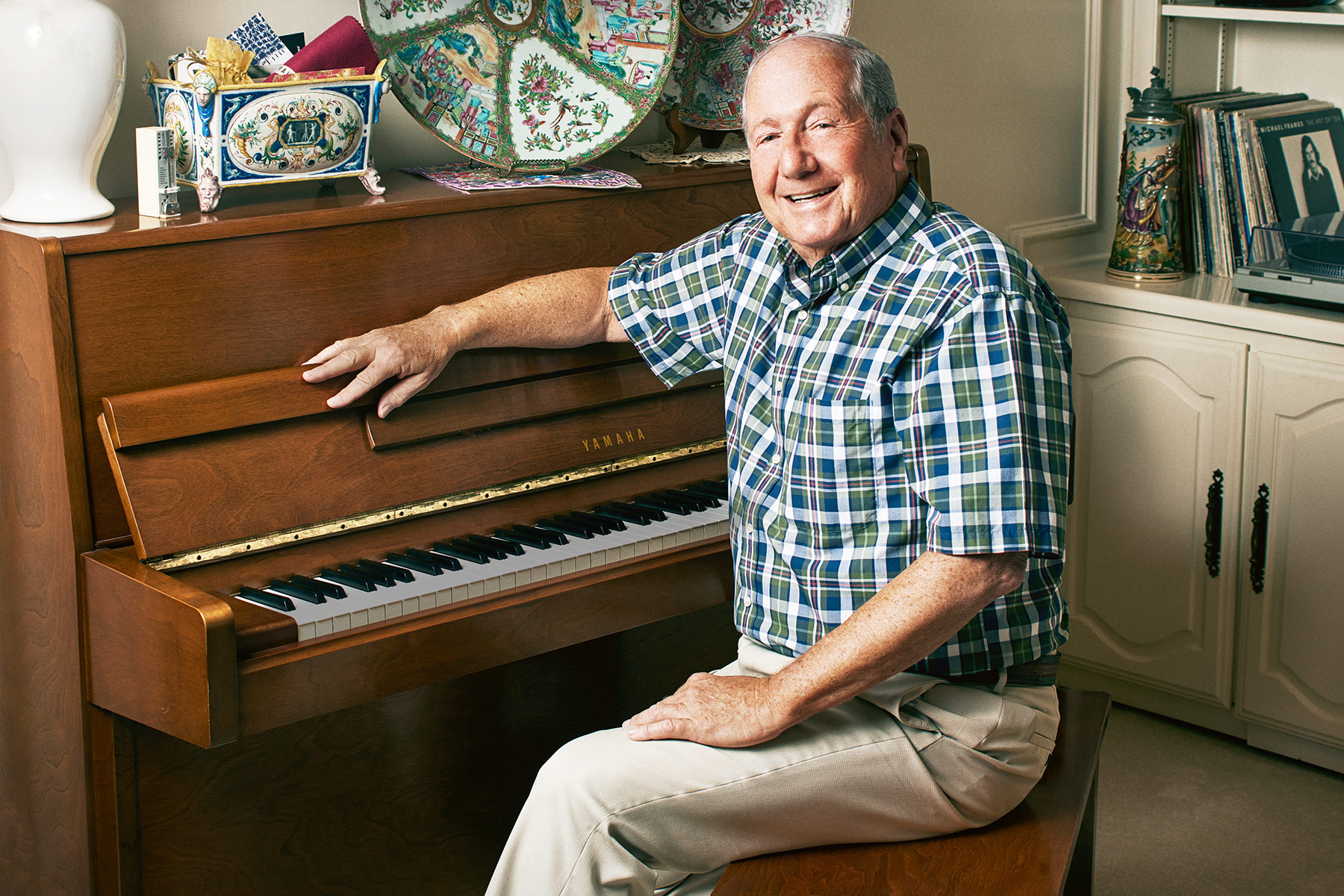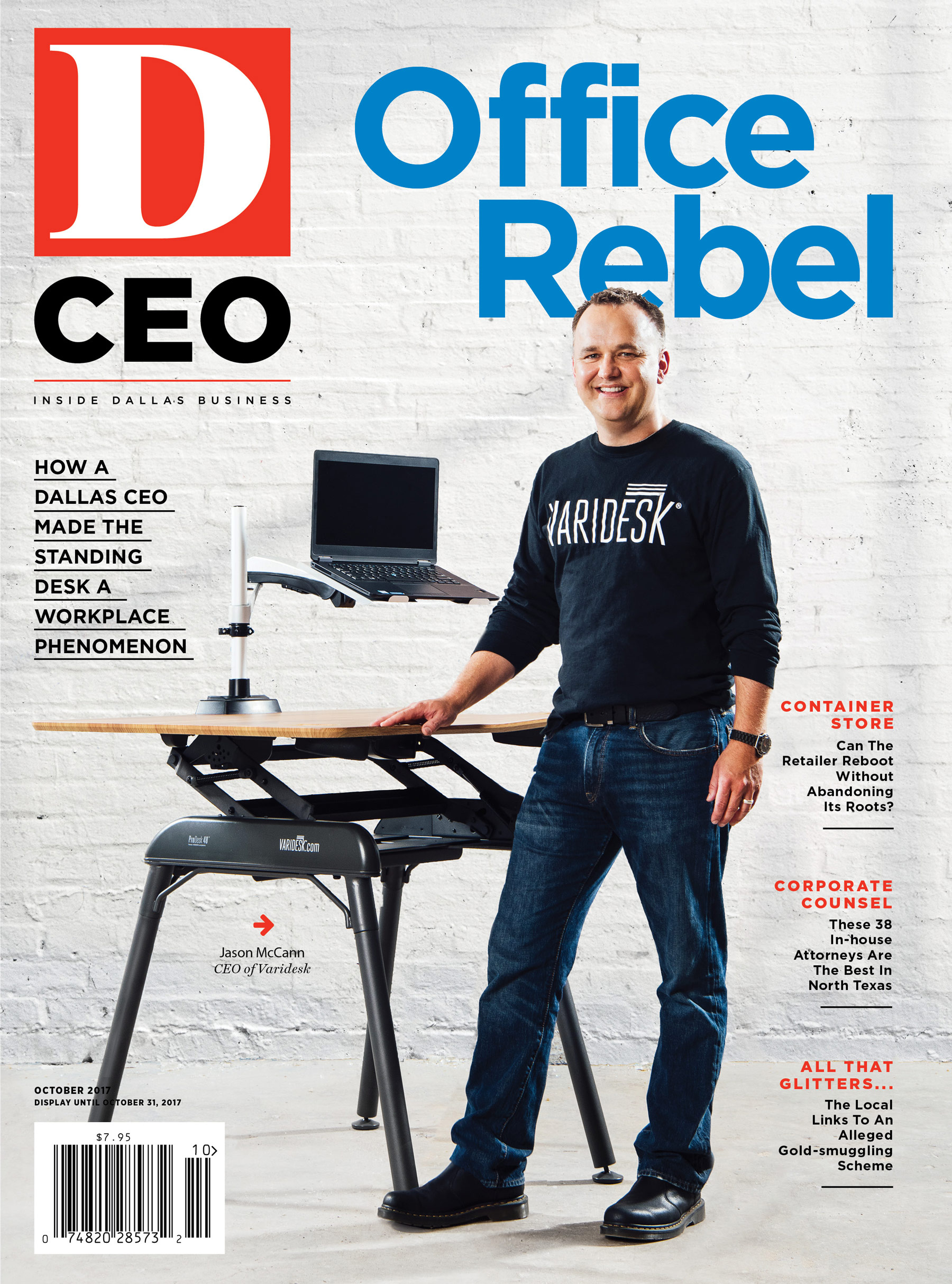When not in his office at Southern Methodist University, chances are Bernard “Bud” Weinstein is sitting on his patio in Far North Dallas, a newspaper or book in hand, listening to jazz.
Weinstein is an associate director of the SMU’s Maguire Energy Institute and adjunct professor of business economics in the Cox School of Business. He previously served as director of the Center for Economic Development and Research at the University of North Texas for 20 years. He has authored or co-authored numerous books and articles on economic development, energy security, public policy, and taxation. He has appeared in major publications such as The New York Times and The Wall Street Journal and has served as a consultant for a number of companies, nonprofit organizations, and government agencies.
But the esteemed economist, 75, is less known for his passion for jazz. It is a passion he discovered as early as high school—well before he graduated with a Ph.D. in economics from Columbia University. “Sometimes, I joke that the reason I got a Ph.D. instead of pursuing jazz piano was because I hate cigarette smoke,” he says.
Weinstein first started taking piano lessons when he was 7 years old. Later, in high school, as rock and roll grew popular among his classmates, Weinstein found himself drawn to jazz instead. One of his earliest encounters with the genre came in the mid-1950s, when he and a group of friends saw a jazz band at The Howard Theatre, a historic African-American theater in Washington, D.C.
From then on, Weinstein was hooked. He spent the next two years learning the fundamentals of jazz piano—chord structure and improvisation. “I liked it,” he says. “I can still hear my mother say: ‘Why do you play that awful music? Play something with a melody!’”
Weinstein went on to form his own group in high school, playing for cocktail parties, program dances, and even fraternity parties at the University of Maryland and George Washington University. While he attended Dartmouth College, his jazz trio competed in contests and collegiate jazz festivals. “[Jazz] just became an interest and a love of mine, and it’s never gone away,” he says. “I’m always listening to it.”
Weinstein has had more than a few encounters with late, great jazz musicians of the 1950s, ’60s and ’70s—Dizzy Gillespie, Mose Allison, Art Blakey, and Horace Silver, to name a few. He has also seen the big bands of Duke Ellington, Count Basie, and Earl Hines. “I had a brief conversation with John Coltrane in the men’s room at Birdland,” Weinstein says, recalling meeting the saxophonist in a famous Manhattan jazz club.
Weinstein reminisces on his time as a graduate student in New York City in the 1960s, which he describes as a “dynamic” period for jazz. He held onto this passion overseas while he studied for a year at the London School of Economics, where he frequented a prominent jazz club called Ronnie Scott’s.
Whenever Weinstein travels, he always checks to see if there are jazz clubs nearby—and who is playing. Such travels have brought him to see local and famous jazz musicians alike in London, Copenhagen, Berlin, Paris, Buenos Aires, and Brisbane, Australia. Last February, he and his wife even went on a contemporary jazz cruise for a week. “Jazz has provided a great avenue for me to meet people in different countries,” he says. “I try to keep an open mind and an open ear.”
And while Weinstein appreciates most forms of music, he praises jazz for its intellectualism. “[Jazz] takes a certain type of intellect or genius,” he says. “It’s genius to be able to invent on the fly. You’re always inventing—I guess that’s what I really like about it.”
This intellectualism, in turn, carries over into Weinstein’s career as an economist. “Jazz is the kind of music [that requires you] to concentrate when you’re listening to it,” he says. “It helps me concentrate on whatever it is I’m working on that involves economic analysis. It’s training for the brain.”
Although Weinstein hasn’t played with a group in years, he continues to play the piano for his own amusement. He still has the Yamaha he bought when he and his wife first moved to Texas, along with an extensive collection of nearly 1,000 LPs. Thanks to his Kindle, Weinstein can listen to jazz whenever and wherever he desires. And he does.
“Sometimes I think to myself: ‘When I’m on my deathbed, who do I want to listen to?’ And I haven’t decided yet,” he says. “But when the time comes, I’m just going to put on my headphones and fade away.”






